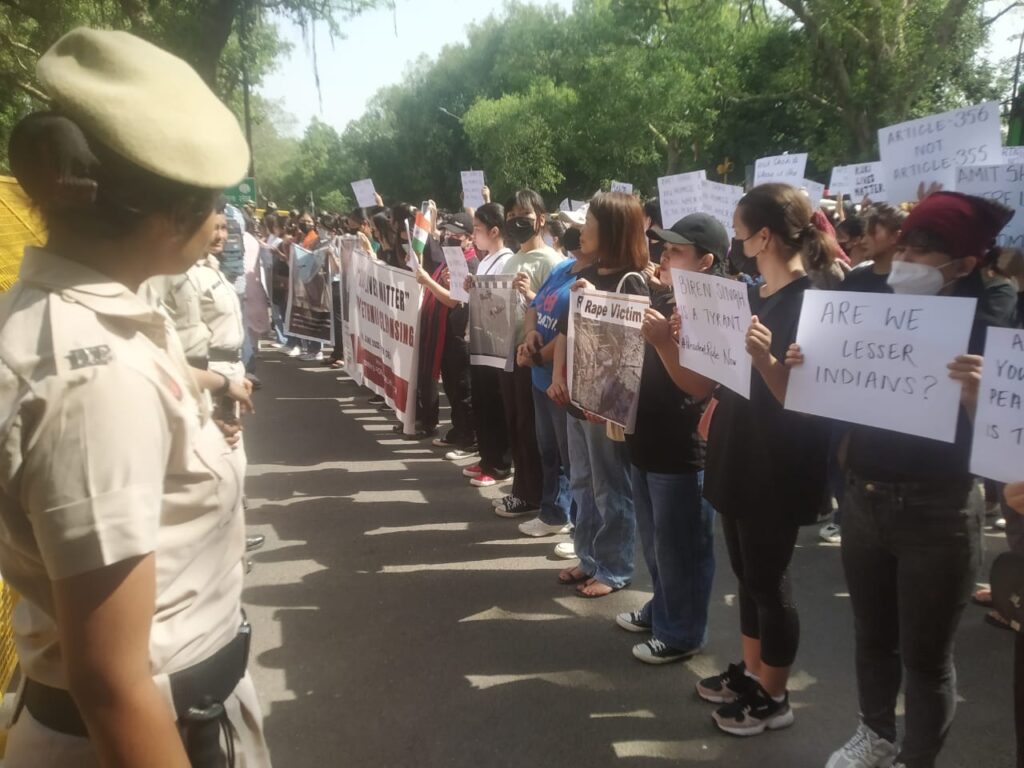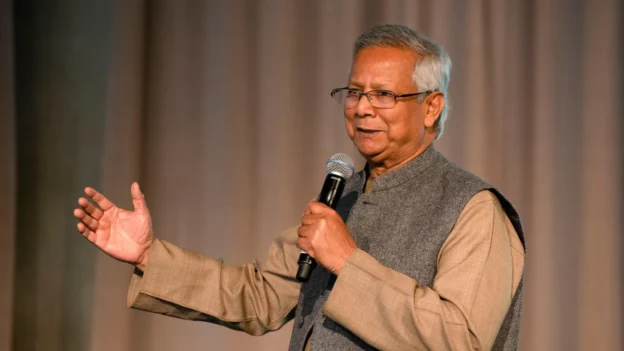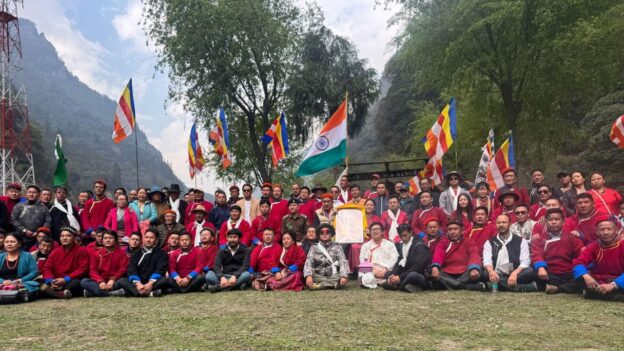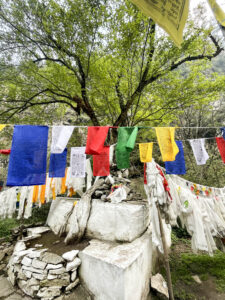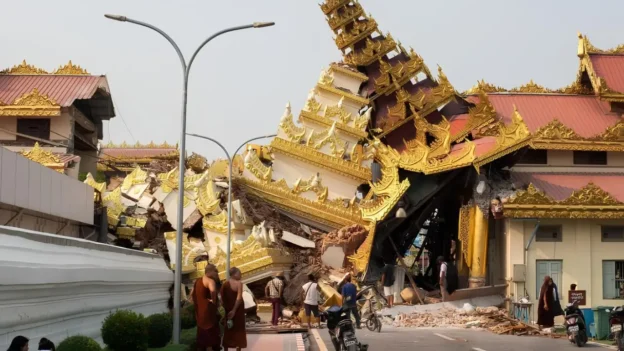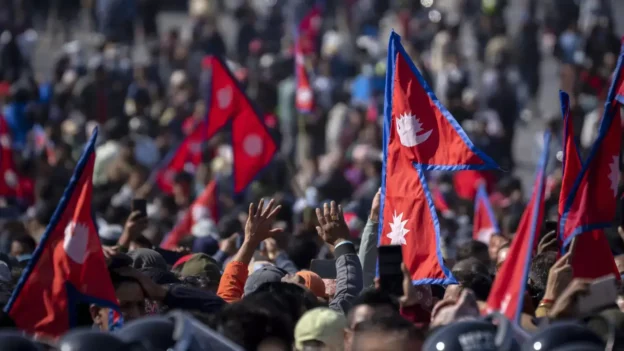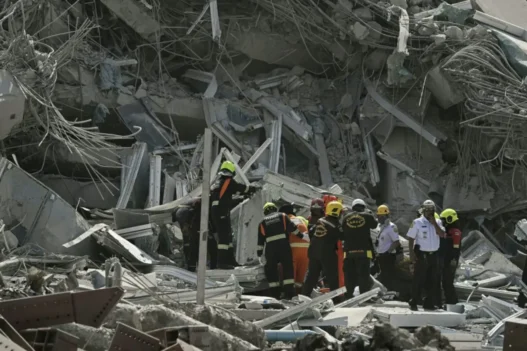The outbreak of ethnic violence in Manipur has writ large the various elements that descended to such a colossal mayhem. The role of the Meitei political leadership in sustaining the structural injustice that permeates the state politics, eventually culminating into widespread tribal discontent, and the dynamic and symbiotic relationship between various civil society organizations and secessionist militants based in the Imphal Valley had been out in the open for all to see. Also, the role of various actors in regards to poppy cultivation (wherein it has been discovered that top valley politicians are the main perpetrators), baseless accusations of illegal immigration and militancy serves as the series of successive Meitei narratives, and the Zo people’s (Zomi-Kuki-Hmar-Mizo) narrative of self determinism, from the clutches of Meitei subjugation and of the structural injustices pertaining to their plight within the state polity, concerns about tribal rights to their lands, identity and customs serves as the bone of contention in the conflict that has been ailing Manipur.
The Problem:
The plurality of stakeholders in Manipur, and the sense of deprivation that permeates the Zomi-Kuki tribal temperament as opposed to the Meitei majoritarian agenda, and the subsequent interaction of all these agencies within the body politic, has culminated into this violence. And unless this ambiguous yet rigid structural arrangement in Manipur is tackled, peace might be a far cry in the ailing border state.
The Union Home Minister has advocated for peace to be maintained across the deep divide, but this is a far cry. In fact, Meitei aggression on Zomi-Kuki lands continues unabated, wherein deployed Armed Forces are rendered incapacitated to fully obliterate any form of violence. Considering the multiplicity of actors in this conflict, ranging from Meitei insurgents, the State, women groups and a myriad of civil society organizations, attempts at instituting a semblance of peace is rather an utter farce.
In this melting pot of conflict, it is interesting as to how the Government at Delhi mitigates the outbreak of violence and the consequent collapse of law and order, considering the stakes the State of Manipur hold in regards to questions of national security, as a probable economic corridor and also in regards to India’s overall image and credentials as an aspiring superpower.
Addressing the structural divide:
Amidst these developments and conflict, the overarching collective inference was the Meitei-Tribal (Zomi-Kuki) divide. However, one needs to see through the surface level and examine how this rift was brought about.
In Manipur, state-making leaders mobilize Meitei identity to capture power. Meiteis, being the dominant community, motivated state-making leaders, including the present State BJP leadership to polish and advocate their Meitei identity, and subsequently garner majority appeal. Such is the tactic used in the narrative of poppy cultivation whereby such an atmosphere is created, where any leader, upon vilifying the ‘other’ tribal groups as ‘bad’ poppy planters, labels of immigrants or narco-terrorists, would then bestow a certain moral stature, thereby drawing a semblance of legitimacy amongst the Meitei populace, garnering more favor and support. The leader that is successful in mobilizing the Meitei populace along these lines will then be portrayed as the repository of Meitei interests and aspirations. But this rampant mobilization is not the wisest of statecraft in a State like Manipur where there are dynamic and multiple stakeholders. This immediately led to exclusion of the tribals, to an extent that at this point in time, a separation across all possible divides, be it emotionally, physically and territorially had been actualized.
Also, the conflict in Manipur is beyond party politics. It is noteworthy that before the BJP came into power, successive Congress led Governments have been culpable in the state failure to address the structural arrangement, whereby Hill tribals are much subjugated. Even in the recent outbreak of violence, and the consequent failure of law and order starting from the 3rd of May, 2023, the Manipur State Congress Committee remained aloof in matters regards to tribal demand for separation, oblivious as to why tribals demanded the same, while declaring that Manipur’s territorial integrity be maintained. This implies that even the Manipur State Congress is hellbent on maintaining this structure within the state of Manipur, where Meitei interests dictate all proceedings, thereby further depriving tribals of their interests.
This structural arrangement, where the Meitei majoritarian agenda serves as the overarching theme for successive state governments, across all party lines, is what led to the continual subjugation of the hill tribes. Hence legislations, albeit arbitrary, which caters to the majoritarian interest will always gain wide reception amongst the Meitei populace, no matter which political party is in power. Of late, arbitrary legislations in regards to tribal lands had been a major bone of contention, whereby the Meitei dominated government in Manipur declared large tracts of lands as Reserved Forests, Protected Forests, Wildlife Sanctuaries and Wetlands, without following due process. However, tribal resentment against these arbitrary policies are not reflected in the Meitei narrative. Likewise, tribal interests are always susceptible to the same majoritarian encroachment within this structural arrangement, and this also contributes to the grave animosity and sense of distrust between the warring entities.
Now, with several lives lost, and tens of thousands in the violence, severed wounds owing to this structural arrangement are lacerated to a point where peace is a far cry. ‘Justice’, ‘Peace’ and ‘Harmony’ are now just political jargons in the ears of the Zomi-Kuki tribes. It is understandable if restitution of a semblance of ‘normalcy’ is met with wide recalcitrance on the part of the hill people, who have been ‘fed up’ of the decades old subjugation by a structure that is dictated by Meitei majoritarian interest.
Any form of restoring peace in Manipur must therefore, be with an endeavor to address the structure which deprived the Zomi-Kuki tribes. And given that the grave humanitarian issue is a corollary of a stark political injustice, peace has to be instituted through a political solution. This will address tribal discontent and will instill a sense of democratic justice. Thus, separation of the Zomi-Kuki tribes, and their lands from that of Manipur is inevitable, considering the colossal damage to relationships, institutions and trust, let alone the decades long deprivation these tribal groups endured.
Addressing India’s National concerns in regards to the Manipur Conflict:
It is imperative that peace be instituted in Manipur. But the long route to peace needs to take into account various considerations in regards to the national leadership. First it is necessary to examine why peace, for National interest must be instituted. Secondly, given the plurality of stakeholders, what rationale must constitute the institution and restoration of perpetual peace, given the imperative that a likelihood of such a conflict may be obliterated.
Unbridled Meitei Majoritarianism discredits India’s Federal and Democratic ethos
India, while boasting of being the largest democracy, has the Manipur conflict as a thorn in its heel. Democracy entails the rights of minority groups be safeguarded, and that tribals with distinct identities be protected. This is also one of the guiding rationale as to why India is a federal union. Minority groups within this federal framework are safeguarded by the principle of asymmetrical federalism, which is a conscious constitutional design that legitimizes minority assertion.
However, in regards to Manipur violence, and given its wide coverage in the media, it has been clearly established as to how there is a superseding structural inequity which is left unaddressed, leaving tribal groups deprived. Also the failure to accommodate ethnic diversities within a state of the Union of India is a glaring contrast to how it seeks to portray how Indian democracy has been accommodative and widely tenable.
By compromising federalism and democratic justice, the Manipur state and its functioning is rather antithetical to the very ethos and principles which India loudly advocates at the world stage. Failure to institute the same, will dent the credentials which India as a nation is credited for, hence, a massive downgrade in its push for a leading world power.
Unstable Manipur will impede National Development and threaten National Security:
Peace is always a precursor to development. Unless a semblance of peace is instituted within a region marred by conflict and widespread violence, economic activity will remain scarce, which will then impede the various developmental schemes and economic corridors India has planned.
It has already been established how conflict in Manipur will always rejuvenate if political stability and peace is not ushered in through a political solution. This is because Zomi-Kuki tribes will be incapacitated to endure prolonged subjugation, and with the absence of an institutionalized peace, will yield perpetual agitation and discontent, thereby bringing Manipur at the brink of another major conflict. Hence developmental steps within an economically viable, yet unstable borderland would be compromised.
Peace along AH-1 is also imperative for development, and with Manipur being a strategically located entity in regards to the Act East Policy, instability and ethnic unrest will be a major impediment to the economic concerns of India in its trade interest with South East Asian countries. Thus, the absence of peace will undercut and impede developmental steps taken to actualize economic prosperity.
Moreover the southern part of present day Manipur offers a strategic location in trading routes that were envisaged. However, continual ethnic unrest will compromise developmental schemes. Northeast India in general, and Manipur in particular, are bordered by politically unstable countries, including hostile ones. India needs a peaceful and stable Northeast, also in national and security interest. This is because instability and political unrest along the border is always fertile ground for insurgencies sponsored by other nations, and given that there is a likelihood of India’s sovereignty being compromised in this part of the country, all ethnic qualms must be addressed, or talks of ethnic demands need to be expedited. This is imperative because India cannot risk fighting armed uprisings along its border.
Addressing the structural injustices and finding a solution:
India aspires to be a superpower, but of late, owing to the outbreak of conflict in Manipur, its credentials face a daunting scrutiny. This will continue if ethnic diversities within its border State are unsettled. If the structural injustice within Manipur remains unaddressed, leading to perpetual conflict, it discredits India’s conscious constitutional design and mechanism which seeks to address the various legitimate multiplicity of interests within its polity, as witnessed in the Manipur conflict. The prevailing scenario, under worldwide scrutiny, will betray the very idea India stands for in the world stage.
Also, within an economically and geo-strategic border like Manipur, such depravity of the minorities by the State would negate the testament of ‘democratic’, ‘accommodative’ and ‘just’ India, but instead prolong instability, thereby compromising development. Being an aspiring superpower entails the need to settle disputes and ethnic strife amicably, the very tools needed in promoting world peace and development, across a melting pot of ethnic strife, conflicts and contestations.

